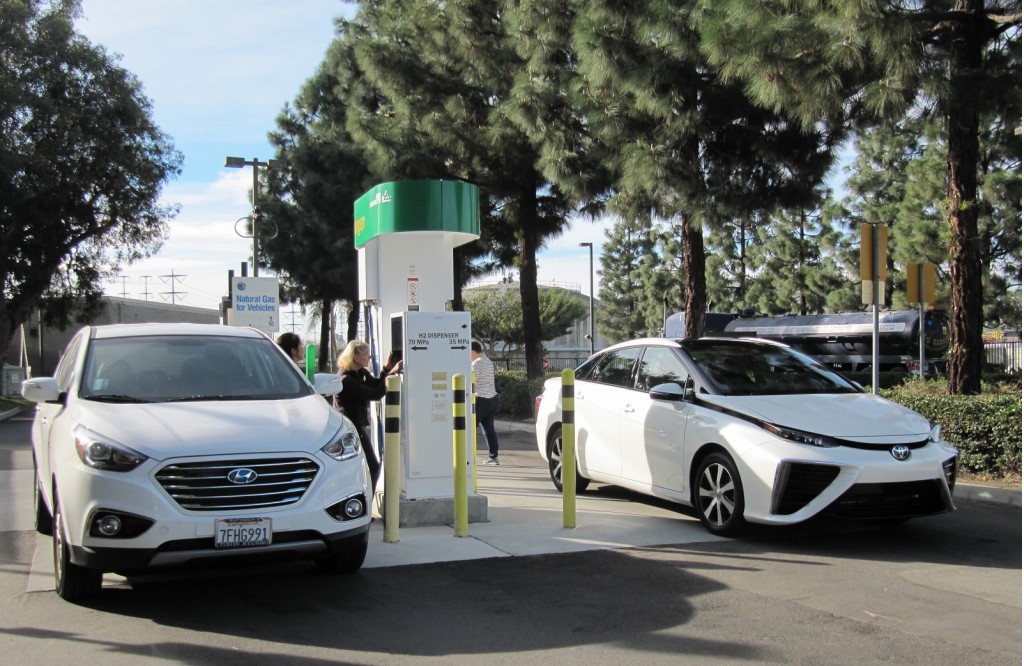No single definition exists for the idea of "green car," and very few shoppers set out to go buy a green car.
Instead, car buyers look for vehicles that meet their needs—with fuel economy or energy efficiency somewhere in that list of needs, whether higher or lower.
Certainly the definition of "green car" has evolved since this site began daily news coverage almost nine years ago.
DON'T MISS: When will U.S. ban sales of new cars with engines? Poll results
Then, the most popular topic was hybrid-electric vehicles, and the most popular single vehicle we covered was the Toyota Prius.
That began to change within a couple of years, concurrent with the launches of the Chevrolet Volt, Nissan Leaf, and Tesla Model S from December 2010 through July 2012.
Now, plug-in electric cars provide the most reader interaction and often the highest-traffic articles, topics, and keywords.
What topic should we have covered less in 2017?
— Green Car Reports (@GreenCarReports) December 26, 2017
Still, we try to cover a broad array of topics across all facets of what makes a green, or at least greener, car.
We still review vehicles with gasoline engines alone, though they're no longer eligible for our Green Car Reports Best Car To Buy award each year.
For many of our readers, an electric car remains impractical—especially those living in apartment buildings or who cover long distances unpredictably—so we cover other ways to reduce a car's energy footprint.
READ THIS: Which alternative fuels will survive long-term? Twitter poll results
The poll we've just finished asked what our Twitter followers felt was our most important story of the year; we'll cover the results of that one tomorrow.
Our latest Twitter poll flips that around, asking participants what topics this site now spends too much time covering.
We put in "electric cars," because it's always possible that we're overstressing cars whose sales today remain a very small percentage of the overall U.S. market of 17.5 million new vehicles a year.

Honda Civic GX and Phill natural-gas home filling unit
Other choices include various of what we used to call "alternative fuels," a term we don't hear so much these days.
We grouped "biofuels [and] natural gas" into one choice, prompted in part by the story of a reader who had to sell his natural-gas powered Honda Civic after a decade because his local fueling stations closed.
CHECK OUT: When fueling stations shut down for your natural-gas car: one reader's experience
The other alt-fuel option in our poll is "hydrogen fuel cells," a topic that if nothing else provides, shall we say, lively reader commentary.
Several global carmakers remain committed to bringing hydrogen fuel-cell vehicles to market at scale, however, and have committed many billions of dollars toward that goal—which can't be said of, for instance, natural gas.

2015 Hyundai Tucson Fuel Cell, 2016 Toyota Mirai at hydrogen fueling station, Fountain Valley, CA
Our final choice of topics that poll participants can choose as the one we cover too often is "climate change," a topic that includes energy politics, the electricity utility industry, and of course the science now being denigrated by the current U.S. administration.
Let us know what you'd like to see less of on Green Car Reports by voting in our Twitter poll, and we'll report on the results next week.
As always, please note that our Twitter polls are far from scientifically valid, due to small sample size and self-selection by those who choose to participate.
_______________________________________













